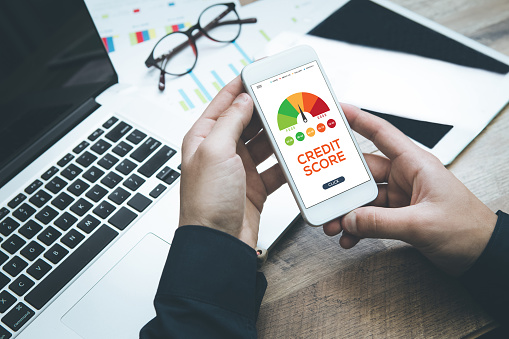About Us What’s New?

 April is Credit Union Youth Month! 4/1/2024 During April, credit unions across the country celebrate National Credit Union Youth Month. While credit unions take financial education seriously all year long, this month lets us focus on providing even more opportunities to work with our members to promote financial wellness for our future generation. We’ll keep you posted all month long with tips & ideas to help get your child involved in finances.
First things first:
#1 – Open a youth savings account at your local credit union. With no minimum balance requirement and an interest earning account, a youth savings at METRO can help kids lay the foundation for future financial success. METRO’s savings and Kid’s Club account are great ways to teach the value and responsibility of saving. Encouraging and cultivating good savings habits at a young age can contribute to a healthy financial future.
#2 – Help your children set savings goals. Children––just like adults––will be much more motivated to save their money if they have a specific goal in mind. Help them set their sights on something to save up for, remind them of their goal whenever they get an inclination to spend, and watch them as they experience the thrill of achieving an accomplishment!
#3 – Use a clear jar for saving money at home.
If you’re trying to communicate the importance of saving money at home, consider using a clear jar. While a piggy bank is a great idea, it doesn’t give kids a visual. When using a clear jar, they can see their money grow over time. You can tell your children that once the money reaches the top, they can use it to buy something they’ve wanted, or your child can take a trip to the credit union and deposit the money like a “big” boy or girl. They will be able to monitor their progress, experience delayed gratification, and learn the importance of saving.
#4 – Play money management games during CU Youth Month. Board games like Monopoly or the Game of Life encourage kids to strategize––teaching them the importance of budgeting, saving, and planning for the future, all while masquerading as fun games. This is especially good for tweens and teenagers!
#5 – Consider matching your child’s savings as an incentive. One of the reasons people save in their employer’s retirement plan is the company’s matching contribution. If you’re looking to motivate your children to save, consider using a similar method. If they’re saving for a particular item, such as a toy or video game, consider offering matches when they hit certain savings milestones.
#6 – Save away for a rainy day at your local credit union. Traditional savings accounts offer a tried-and-true way for people to store money. If you want to start saving for your child’s future, open a youth savings account at your local credit union! METRO has a few options that fit every stage of your child’s life. Contact one of our Member Service Representatives if you have any questions about our youth and student accounts!
#7 – Start saving for college now. There are a lot of savings plans that can help families save for higher education, with all earnings being tax-free! The earlier you start saving for your kid’s higher education, the more time it will have to compound and grow—giving your kids a head start in funding their future educational expenses. And, when your teen is ready, adding a Student Checking Account is a great way to continue their money management skills that they’ll use for the rest of their life!
FUN EXTRAS! 2024 CU Youth Month Coloring Page |
Time for some of the best deals of the season starting today, Black Friday, and leading up to this coming Cyber Monday. With retailers offering deals early this year, especially online, we’ll most likely see an increase in internet traffic too. And with online shopping comes online scammers. Make this shopping season better by protecting your data and avoiding fraudsters. Cyber Monday Safety Tips for Online Shopping Stick with Reputable Retailers. Go directly to the company website and avoid clicking on links in ads, emails, and especially text messages. We’ve seen an uptick in fraudulent text messages this year, so be wary of any in-text links. By shopping at big retailer websites you can use safe purchase methods, such as Apple Pay. Also, be aware of third-party sellers- even with the big retailers. They’re popping up online at big-name brands like Target and Walmart. Make sure to look at the “sold by and shipped from” note in the product description. Online shopping with reliable retailers may also help you avoid other hassles like shipping delays, knockoffs, or poor-quality products. Look for Secure Sites. If you’re already planning on shopping with reputable retailers, their sites should be secure. If you want to support local shops or small businesses, make sure their sites are secure as well. You can do this by looking for a little lock icon in the top left corner of your browser bar when you’re on the website. The website should also begin with HTTPS and not HTTP. The “S” indicates secure. And NEVER shop on public Wi-Fi connections. These connections are typically unencrypted and unsecured and can open the doors to scammers. (As an example, if you look up in the web address bar, you should see https://mcu.org/ – which means METRO is a secure site!) Protect Your Info. Opt for your Credit Card over your Debit Card. Debit cards offer direct access to your bank account and the fraud/chargeback process is more tedious than if you need to report fraud on your Credit Card. But regardless of the card you use, never save the digits online or even on your computer for a “faster” checkout process. If a quick checkout is what you’re looking for, use Apple Pay or PayPal – this way retailers won’t ever get your card information. Watch Out for Holiday Scams. You know they’re out there – and you know they want to steal your information in hopes you are distracted during the biggest shopping season. So be extra careful of deals and discounts around the holidays, especially if it seems TO GOOD TO BE TRUE. Verify the sites you are on, use a credit card, and never pay with a gift card or instant payment option, like Zelle or Venmo. If the seller asks you to pay via Zelle or Venmo, it’s most likely a scam, as those payment options are supposed to be used only for people you know. Plus, if you never receive an item you paid for, it is much easier to get your money back when using a credit card! Strong Passwords Really are Important. It should be common sense, but we all fall short sometimes and use easy-to-remember passwords. Long passwords with a mix of upper and lowercase letters, numbers and characters can prevent hackers from stealing your personal information and using your account to make purchases. Apple phones have a built-in password manager that you can utilize to generate AND save passwords securely. (There are other online options, such as LastPass, that can manage your passwords, provided you keep your computer up to date on its security features.) Check Your Statements. Whether you view your account history online with your METRO mobile app or wait each month to get your METRO eStatement, look for any suspicious activity and report it immediately. Overall, we hope you get all your shopping done quickly and safely this holiday season!
|
 3 Reasons to File Your Taxes Early 2/11/22 We literally blinked and it’s February! Hopefully, everyone has gotten all their tax forms by now and at least started to think about filing. This year we have until April 18th, but why wait that long? If you do have all the necessary paperwork (W-2, 1099, 1098, etc.), then here are a few reasons to file your taxes NOW: Tax professionals aren’t as busy. Not just tax professionals, but the IRS too. If you file online, this obviously won’t be a big deal, but if you do enlist the help of a pro, you’ll have a much easier time getting an appointment! (It’s okay, some of us just need extra help sorting through mountains of receipts…) Avoid potential fraud. Fraudsters never sleep, and tax fraud is just another one of their specialties. Tax fraud can happen if you have identity theft and someone uses your stolen personal information to file a tax return claiming a fraudulent refund. The sooner you file, the less chance of a fraudster claiming to be you and taking your money. The IRS has a Taxpayer Guide to Identity Theft with lots of resources and tips to keep your identity safe. You’ll get your money sooner (or have more time to pay). This is an easy one – and probably the best. The sooner you file, the sooner you get your money! The closer you wait until Tax Day, the busier the IRS and the longer it will take to get your refund. On the other hand, if you know you’re going to end up owing money, filing early will actually give you extra time to pay.
Already been a victim of tax fraud? Report any type of tax fraud, preparer misconduct, or fraudulent IRS emails to the IRS here.
|
Keep Your Data Safe While Traveling this Holiday Season 12/3/21 Scammers and identity thieves are on their game this holiday season. For those of you who have decided to travel again, don’t let your guard down even when vacationing or visiting friends & family.
Follow these 3 easy tips to protect your info:
To add a credit freeze on your Transunion credit report, visit transunion.com/credit-freeze.
|
Christmas Club Account Disbursements Right Around the Corner 10/1/21 Your money is coming! METRO’s Christmas Club Account holders will be ready for holiday shopping! Club account funds will be transferred or mailed on the first business day of November. Don’t have a Christmas Club Account? Plan early for the next holiday season by opening a Christmas Club today and allocate a portion of your direct deposit to your club account to make savings automatic. It’s an easy way to prepare for holiday shopping.
|
Improve Your Credit Score 5/1/21 At the credit union, we receive a lot of questions about credit reports and credit scores. How a score is calculated and how to increase a credit score are among the top questions. It’s not the easiest question to answer because credit scoring systems are complex and vary between creditors, including different types of credit. However, there are some fail-safe tips that transcend the credit bureaus that can aid in improving your credit score! Are you paying your bills on time? Payment history is a significant factor in determining your score. If any bills are behind, pay them current for an instant credit boost. If your credit report indicates late payments, collection accounts, or bankruptcy, it will affect your credit negatively. Settle with any collections or pay them in full to also see an uptick in your score. Are you maxed out? Review your credit card limits and available balances. Credit utilization is another BIG factor in determining your score. Most scoring systems evaluate the amount of debt you have compared to your credit limits. If the amount you owe is near, or at, your credit limit, pay those balances down and watch your score climb up. The rule of thumb is to try and utilize under 50% of your available credit limit. How long is your credit history? Most scoring systems consider your overall credit history or how long you’ve had credit. Insufficient credit history may negatively impact your score. Usually, factors like on-time payments (payment history) and low balances (low credit utilization) can offset this, because let’s face it, credit history just takes time. If you’re hoping to increase your score, don’t give up! Keep making those payments (on time)! Besides the above list, factors to also take into consideration are how often you’re pulling your credit and if you have too many or too few credit accounts. Try to limit your credit inquiries for new credit accounts. And, watch out for having too many credit card accounts, especially if balances are high. Need more information? Call us! Contact a friendly staff member at 847-670-0456.
|
Where There is Money, Scams Will Follow! 3/19/21 With the new American Rescue Plan just signed into law, millions of Americans will soon be getting their stimulus payments. Many have already received their payments by direct deposit, with more being sent via United States Treasury check or EIP debit card. And, that also means that possible scams and fraud are to follow. According to ftc.gov, the following information will help you avoid fraud and spot scammers right away!
These tips also apply to everyday scams as well – including the IRS, your financial institution, and other major corporations – like health insurance companies. If it seems suspicious, its probably a scam. If it seems strange, its probably a scam. Remember, don’t reply to any of these types of calls/texts/emails/DM’s and feel free to just HANG UP. If you spot one of these scams, you can report it to the Federal Trade Commission (FTC) at ReportFraud.ftc.gov.
|
Credit Cards or Debit Cards – What’s the Smartest Swipe? 9/18/20 Most people own at least one debit card and at least one credit card. They know they have them, but they may not know about all the differences that exist between using a credit card and a debit card. Believe it or not, there are many. The most basic difference is the fact that each time you use a credit card, you’re borrowing money. A debit card, on the other hand, simply transfers your own money from your checking account to the vendor you’re paying. When you use your credit card, your credit union is lending you money, which you’ll need to pay back along with interest. A debit card takes funds directly from your account similar to the way that checks do, only quicker. Some processing terminals will require a PIN and some will require a signature. Both credit and debit cards are convenient, quick and easy. They’re also safer than cash, because cash cannot be replaced if lost or stolen. 1. Budgeting However, it’s nearly impossible to incur thousands of dollars of debt through debit card usage. Most credit unions will cover purchases that put your account into the red but only up to a few hundred dollars. If this happens, you’re accountable for your purchases. 2. Safety For debit card fraud, your liability is $50 if you notify the credit union within two days of seeing the fraudulent charges. After two days, your liability increases to $500. If you report the activity 60 days or more after it happened, you may be liable for all of it. Although many credit unions have implemented voluntary plans to limit customer liability to $50, there is no federal law requiring them to do so. In addition to stricter liability laws, credit cards offer consumer protection on purchases. You can always cancel a charge if you are the victim of an online scam or bought something that was never delivered or wasn’t what you expected. This makes credit cards the ideal choice for large or fragile purchases that will be delivered to your home for additional insurance on the purchase. 3. Rewards Don’t get hooked on the points. Research each card carefully to make sure you’re really getting your money’s worth. 4. Credit History 5. Annual Fees and Interest If you don’t think you will be able to pay your bills in a timely manner, keep credit card usage to a minimum. As a METRO Federal Credit Union member, you already have access to fantastic rates and optimal security. To find out if a debit or credit card is best for you, call, click to apply or stop by today! Your Turn: In what situations do you prefer to use a debit card or a credit card? Why do you choose one over the other? |
Tap Into Your HOME EQUITY For Extra Cash! 6/24/2020 If you’re looking for a large sum of money to use for a home improvement project, or the economic devastation of COVID-19 has left you in desperate need of cash, consider tapping into your home’s equity. One great way to do this is by opening a home equity line of credit, or a HELOC. Let’s take a closer look at HELOCs and why they can be an excellent option for cash-strapped homeowners in today’s financial climate.
A HELOC is a revolving credit line allowing homeowners to borrow money against the equity of their home. The HELOC is like a second mortgage on a home; if the borrower owns the entire home, the HELOC is a primary mortgage. Given that a HELOC is a line of credit and not a fixed loan, borrowers can withdraw money from the HELOC as needed rather than borrowing one lump sum. This allows for more freedom than a loan and is especially beneficial for borrowers who don’t know exactly how much money they’ll ultimately need to fund their venture. Borrowers withdraw funds (aka “draws” or “advances”) from the HELOC during a set amount of time that is known as the “draw period,” which generally lasts 10 years. Some lenders place restrictions on HELOCs and require borrowers to withdraw a minimum amount of money each time they make a draw, regardless of need. Other restrictions include the requirements to keep a fixed amount of money outstanding, or to withdraw a specific sum when the HELOC is first established. At METRO Federal Credit Union, we have few restrictions. Each draw, or advance, can be a minimum of $1,000, and there is no prepayment penalty! For more information on METRO HELOCS, click here.
Repayment of HELOCs varies, but is usually very flexible. Many lenders collect interest-only payments during the draw period, with principal payments being strictly optional. Others require ongoing monthly payment toward both principal and interest. When the draw period ends, some lenders will allow borrowers to renew the credit line and continue withdrawing money. Other lenders require borrowers to pay back the entire balance due, also known as a “balloon payment.” Still others allow borrowers to pay back the loan in monthly installments over another set amount of time, known as the “repayment period.” Repayment periods are generous, lasting as long as 20 years. How can borrowers spend the money? While home improvement projects are popular uses for HELOCs, borrowers are free to spend the money however they please. Some other uses for HELOCs include debt consolidation, funding a wedding, adoption, dream vacation or the launch of a new business. Is everyone eligible for a HELOC? Like every loan and line of credit, HELOCs have eligibility requirements, which help lenders determine the applicant’s financial wellness and responsibility. Most notably, the borrower must have a minimal amount of equity in the home. Lender requirements vary, but most homeowners will be eligible for a HELOC with a debt-to-income ratio that is 40% or less, a credit score of 620 or higher and a home assessment that stands at a minimum of 15% more than what is owed. How much can I borrow with a HELOC? HELOC amounts vary along with three criteria: the value of your home, the percentage of that value the lender allows you to borrow against and the outstanding amount on an existing mortgage. To illustrate, if you have a $300,000 home with a mortgage balance of $175,000 and your lender allows you to borrow against 85% of your home’s value, multiply your home’s value by 85%, or 0.85. This will give you $255,000. Subtract the amount you still owe on your mortgage ($175,000), and you’ll have the maximum amount you can borrow using a HELOC, which is $80,000. METRO will finance up to 90% loan-to-value on homes, based on credit score. What are the disadvantages of a HELOC?
A HELOC is secured by your home’s equity, which places your home at risk of foreclosure if the HELOC is not repaid. Before opening a HELOC, it’s a good idea to run the numbers to get an estimate of what your monthly payments will look like and whether you can easily afford to meet them. Also, many lenders require the full payment of the HELOC after the draw period is over. This can prove to be challenging for many borrowers. Finally, if you don’t plan to stay in your home for long, a HELOC may not be the right choice for you. When you sell your home, you’ll need to pay off the full balance of the HELOC. You may also need to pay a cancellation fee to the lender. A HELOC can be a great option now HELOCs have variable interest rates, which means the interest on the loan can fluctuate over the life of the loan, sometimes dramatically. This variable is based on a publicly available index, such as the U.S. Treasury Bill rate, and will rise or fall along with this index, though lenders will also add a margin up to a few percentage points of their own. The fallout of COVID-19 may impact the economy for months, or years, to come; however, there is a silver lining among the rising unemployment rates and bankrupt businesses: historically low interest rates. The average APR for fixed 30-year mortgages has hovered at the low 3% for months now, and experts predict it may continue to fall. The low rates make it an excellent time to take out a HELOC with manageable payback terms. The economic uncertainty the pandemic has generated also makes it a prime time to have extra cash available for any need that may arise. Are you looking to tap into your home’s equity with a HELOC? Now through June 30, 2020, METRO is offering a Home Equity Line-of-Credit Special that you don’t want to miss! Click Here to learn more. Missed the Deadline? Don’t worry! Our favorable rates, generous eligibility requirements, low fees, and easy terms make a METRO Federal Credit Union HELOC a great choice. Click Here to see our current rates and start accomplishing your goals today! |
How Should I Spend My Stimulus Check? 4/27/2020 The stimulus checks promised in the Coronavirus Aid, Relief and Economic Security (CARES) Act are starting to land in checking accounts and mailboxes around the country. The $1,200 granted to most middle class adults is a welcome relief during these financially trying times.
Many recipients may be wondering: What is the best way to use this money? To help you determine the most financially responsible course of action to take with your stimulus check, we have compiled a list of advice and tips from financial experts and advisers on how to use this money. Cover your basic life expenses First and foremost, make sure you can afford to cover your basic necessities. With millions of Americans out of work and lots of them still waiting for their unemployment insurance to kick in, many people are struggling to put food on their tables. Most financial experts agree that it’s best not to make any long-term plans for stimulus money until you can comfortably cover everyday expenses. Charlie Bolognino, CFP and owner of Side-by-Side Financial Planning in Plymouth, Minn., says this step may necessitate creating a new budget that fits the times. With unique spending priorities in place, an absent or diminished income and many expenses, like subscriptions and entertainment costs, not being relevant any longer, it can be helpful to reconfigure an existing budget to better suit present needs. As always, basic necessities, such as food and critical bills, should be prioritized. Build up your emergency fund If you’ve already got your basic needs covered, start looking at long-term targets for your stimulus money. “I would immediately place this money in my emergency fund account,” says Jovan Johnson, CEO of Piece of Wealth Planning in Atlanta. Emergency funds should ideally be robust enough to cover 3-6 months’ worth of living expenses. If you already have an emergency fund, it may have been depleted during the pandemic and need some replenishing. If you don’t yet have an emergency fund, or your fund isn’t large enough to cover several months without a steady income, you may want to use some of the stimulus money to build it up so you have a cushion to fall back on during lean times that are likely to come in the months ahead. Pay down high-interest debts According to the Federal Reserve Bank, Americans owed a collective $930 billion in credit card debt during the fourth quarter of 2019. Using some of your stimulus check to pay off high-interest debt would be a great way to get a guaranteed return on the money, says Chris Chen, of Insight Financial Strategists in Newton, Mass. This advice only applies to credit cards and other private, high-interest loans. The federal government put a 6-month freeze on most student loan debts, so they should not be as high a priority right now. Boost your savings If your emergency fund is already full and you’ve made headway on your debt, it can be a good idea to use some of the stimulus money to add to your METRO Federal Credit Union savings account. The money in your savings can be used to cover long-term financial goals, such as funding a dream vacation or covering the down payment on a new home.
|
Stuck at Home? Spend Your Time Productively 04/09/2020 COVID-19 has wreaked havoc on normal life around the world. Major retailers and small businesses are closing their doors; leisure travel has almost ground to a halt; the stock market is bearing the brunt of a string of losses; and thousands of schools and universities sit vacant mid-semester while their students are home for an indeterminate amount of time. For many people, navigating this crisis successfully means being stuck at home for 14 days or more as they wait out a self-imposed or obligatory quarantine. Others may be home due to school closures or because their place of work has temporarily shut down. Still others may be avoiding going out in public in accordance with the president’s recommendation that people not congregate in groups of 10 or more. While it may, at first, sound like a dream come true, sitting at home without much to do can quickly get old. If you’re one of the millions of Americans waiting out the crisis at home, be proactive about spending your time productively instead of binge-watching six seasons of your favorite sitcom while eating your way through gallons of ice cream. Here are some ideas to get you started: – Learn a new language. Why not use the extra time at home to learn a second or third language? There are many free language apps, like Duolingo, that make mastering a new language almost effortless. – Call an old friend. Socializing in person may be out, but the old-fashioned phone still works just fine. A leisurely chat with an old friend can be a wonderful way to pass the time. – Get fit. Gyms can be a fertile breeding ground for all kinds of germs and bacteria, but an at-home workout can burn all those calories without the fear of being exposed to COVID-19. There are many exercises you can do without any equipment, like lunges, squats, planks, sit-ups and more. If you’re missing the support and camaraderie you get from your exercise classes at the gym, pop a workout DVD into your entertainment center or turn on one of the many fitness classes on YouTube for a similar experience. – Rekindle an old hobby. It’s time to dust off that guitar or pull out the modeling wood and pick up the hobbies you never have time for during your busy working schedule. To keep yourself focused, commit to completing a specific project or reaching a goal while you wait out the outbreak at home. – Brush up on your financial knowledge. With the plethora of personal finance blogs and websites available today, beefing up your financial knowledge so you can make the best, informed decisions about managing your money is ridiculously easy. Visit blogs like Thefinancialdiet.com, MoneyNing.com, or Mr.MoneyMustache.com for interesting reads on a wide range money topics that can help you broaden your financial knowledge. – Declutter. Carve out some time to get started on spring-cleaning your home. Clearing out clutter takes lots of time, and you likely have more time than you know what to do with right now. You can make piles for throwaways, giveaways and keepers. Give your cleared-out closets and drawers a thorough scrubbing while you’re at it. There’s no better time to freshen up the house than springtime! – Review your budget. Budgets tend to need frequent adjusting. Use the spare time you have now to review your monthly spending of the past few months to see if your budget needs tweaking. – File your taxes. The government has postponed the deadline for paying tax bills, but tax returns still need to be filed by April 15 unless an extension is requested. Filing taxes is nobody’s idea of a good time, but taking care of this necessary chore will make the future you glad that you did when this is all over. – Keep stress levels down. Staying cooped up inside when a pandemic is sweeping through the world can really spike up stress levels. Keep calm by ensuring you’re getting enough sleep and minimizing stress triggers as much as possible. This can mean limiting the amount of times you check the news. and/or practicing yoga and meditation. Apps like Headspace can help you achieve complete mindfulness to further reduce stress levels. Wishing you and yours continued health and safety as we navigate this challenging time together. |
5 COVID-19 Scams to Watch Out For 4/7/2020 1. The fake cure scam. Scammers are peddling bogus cures and vaccines. If you’re offered a drug or vaccine to fight coronavirus — especially by a company you’ve never heard of — you’re looking at a scam. 2. Phishing emails from the “World Health Organization” (WHO). Scammers are sending out emails which appear to be from the WHO, but are really an attempt to get you to share personal information. 3. Fake charities. Everyone wants to help those stricken by the virus, but be sure to check out the authenticity of a charity before making your donation. 4. Malicious websites. Scammers have set up websites full of information on COVID-19 with the intention of gaining access to your device. Don’t download any links or open attachments from non-reputable sources. 5. Fake funding scams. Criminals invent a “research team” supposedly on the verge of discovering a cure for COVID-19 — they just need your donation. Of course, all funds donated to this alleged team will go directly into the scammers’ pockets. Only donate to verified causes.
|
All You Need to Know About the COVID-19 Stimulus Plan 4/3/2020 After days of negotiations and last-minute changes, the Senate and the White House have signed a historic $2 trillion stimulus plan to help mitigate the economic fallout of COVID-19. The Coronavirus Aid, Relief and Economic Security Act (CARES) will put cash directly into people’s pockets, provide desperately needed funding for hospitals and help struggling businesses remain afloat in these financially fragile times. Here’s all you need to know about the CARES Act. Stimulus checks
One of the most crucial elements of the bill is the plan to distribute stimulus checks to Americans in the middle class and lower-income levels. Officials hoped to deposit the one-time payments as soon as early April, though Americans likely won’t see the funds until a few weeks later. Aid amounts will be based on household income reported in 2018 taxes (or 2019 taxes if they’ve already been filed), and will average $1,200 for each adult earning up to $75K a year and married couples earning up to $150K a year. Check amounts will begin to phase out for individuals whose income exceeds the $75K threshold, and for couples who earn more than $150K. Individuals earning more than $99K, and couples with no dependents earning more than $198K, won’t receive stimulus checks. Each household will also receive an additional $500 for every child under the age of 17 living at home. You can look up your anticipated check amount on this calculator. The feds are hoping the stimulus checks will help the floundering economy and be a welcome relief to the millions of Americans struggling with a job loss or decreased hours due to COVID-19. The checks will provide benefits quicker than a tax credit and offer more spending freedom for recipients. Increased unemployment benefits Senate minority leader Chuck Schumer (D-NY) said the stimulus plan would put “unemployment insurance on steroids” to help employees in every sector survive the pandemic with their finances intact. The enhanced unemployment insurance includes four months of full paid leave for laid-off workers; expanded coverage for employees who were furloughed; the inclusion of workers who generally do not qualify for unemployment, like gig workers and freelancers; and increased unemployment benefits for all eligible workers by $600 a week for four months in addition to each state’s predetermined unemployment compensation. Funding for the health care system The stimulus plan will pump $150 billion in the country’s overtaxed health care system to help it meet the overwhelming demands of the pandemic. Of this funding, $130 billion will go directly to hospitals struggling to deal with a shortage of masks, ventilators, beds and protective gear; and $1 billion will go to the Indian Health Service. The rest of the money will be used to fund research and treatment and to help the Strategic National Stockpile raise supplies of ventilators, masks and other equipment for hospitals across the country. Small business bailouts Small businesses are among the hardest hit by the pandemic and national shutdown to help “flatten the curve.” The stimulus plan will offer $350 billion worth of funds to these corporations to help them remain solvent during these economically lean times. These funds take the form of loans, some of which may ultimately be forgiven. Funding for state and local governments State governments are especially active and vocal at this time, as they are the sole elected officials authorized to enact and enforce lockdowns on their jurisdictions. State treasuries are also straining to meet the surge in requests for funding from hospitals and individuals seeking unemployment benefits. Local governments are similarly mobilized during the pandemic, with law enforcement authorities in heavily infected areas putting in long, hard hours daily ensuring the safety and health of citizens. The CARES Act will distribute $150 billion directly to state and local governments to enable them to address their spending shortages and to fund their increased labor at this time. Retirement Plans The act calls for waiving the 10% early withdrawal penalty for distributions up to $100,000 for purposes relating to COVID-19, retroactive to Jan. 1. Withdrawals still will be taxed; however, taxes are spread over three years, or taxpayers have the three years to roll it back over. Student Loans Federal student loan borrowers will be allowed to pause payments on their loans. Loans will be put into forbearance for at least 60 days starting March 13, 2020. No payments should be due until after Sept. 30, 2020. Federal student loan interest rates will automatically be set to 0% for a minimum period of 60 days until Sept. 30, 2020. If borrowers continue making payments, the full amount will be applied to the principal. Borrowers do not need to take action to suspend loan payments. In addition, collection efforts, including the garnishment of wages and the seizure of tax refunds, will be suspended on federal student loans that are in default. Mortgages Some homeowners could be able to pause payments for at least six months with the possibility of an additional six months of forbearance, according to the act. Homeowners become eligible if they have one of the following types of mortgage loans:
Additional provisions and addenda There are several other components of the CARES Act, including the following:
The country is going through historically challenging times, but with the combined effort of the federal government, the cooperation and compliance of the public and generosity of each individual, we can all get through this together. Wishing all of our members and their families continued health and safety at this time.
|
TAX DEADLINE DELAYED  Mid adult woman reading bills while making online payment at home 3/20/2020 As part of the government’s efforts to help avoid a recession, Treasury Secretary Steven Mnuchin announced that the tax deadline would be pushed off by a full 90 days. Here’s what this announcement means for taxpayers: Under normal circumstances, taxes are due by April 15. If tax filers cannot complete their taxes in time, they can request a 6-month extension without getting a failure-to-file penalty. Tax extensions are granted easily, but they don’t buy the filer more time to pay any taxes due to the IRS. The extension is only for submitting their returns. Any tax money that is paid after the 15th is generally subject to penalties and interest. This year, things have changed. Taxes must still be filed by April 15 unless an extension is requested, as usual; however, the IRS will not be requiring taxpayers to pay their 2019 taxes until July 15. There will also be no penalties or interest for this delayed payment. The administration believes this move will be a welcome relief for the millions of taxpayers whose income streams have been adversely affected by the COVID-19 outbreak. They are also hopeful that this delay, which will leave an estimated $300 billion in the battered economy, will give it a better chance at recovery. For tax filers who are anticipating a refund this year, it may not pay to request an extension and file late. An extra pile of cash, no matter how small, can really come in handy for those who are out of work. Signing up for direct deposit of refunds can help struggling taxpayers get that much-needed money as quickly as possible. It’s also important to note that, while the federal government has granted this nationwide extension on tax bills, state taxes remain subject to the deadlines of their own governments. In light of the upheaval caused by the coronavirus outbreak, many states are offering their own extensions. |
7 Resolutions For A Richer 2018The New Year is a great time of renewal. That makes it a good time to make bold, decisive changes in your life. Leave behind the baggage that was 2016 and start fresh with a blank slate in 2018. If you’re looking for some resolutions to improve your personal finances, we’re pleased to offer seven ways to make 2018 the year of the dollar! 1.) Track your spendingIf you’re looking to take your first steps toward financial literacy, figuring out where your money goes should be at the top of your list. If you don’t know where your money goes, it’s going to be tough to follow through with any other money plans. You may have a general sense of how much you spend, but after a month where you’ve recorded every dollar, you’ll have a much better picture. Using apps like Mint or Personal Capital can automate the process. You might even find that keeping track of what you do with your money encourages you to spend a little more judiciously. 2.) Make a budgetAbout 70% of Americans live financially spontaneous lives. They don’t make a plan for spending or saving. When asked why they chose not to do so, the most common response was that the family spent all the money anyway. This is a circular problem. If you don’t have a budget that includes setting aside money for long-term expenses and savings, you’ll end up spending all your money on unplanned things and events. The best way to stop the cycle is to sit down and make a budget that modifies your spending to be more in line with your priorities. 3.) Get out of debtEasier said than done, right? However, there’s no bigger stumbling block to financial security and wealth building than debt. It’s hard to save for long-term goals when so much of your monthly income gets eaten up by interest and fees. There are a variety of methods you can use to help accelerate your payoffs. For instance, you can add an extra $50 or $100 to your credit card payments. Or, you can focus all your payment resources on the highest interest debt until it’s paid off and then move it all to the next highest for snowballing your way to freedom from debt. 4.) Start an emergency fundThe best way to avoid going into debt is to have some money on hand to handle the occasional, yet inevitable, emergency. Most Americans, though, can’t come up with $500 in such instances. Set a specific goal, like adding $10 per month to a savings account. At the end of the year, you’ll have more than $100 available in case something goes wrong. 5.) Start a retirement accountYou can’t save for what you don’t think about. When retirement is years or decades away, it’s difficult to incorporate thinking about it into your daily routine. If you have a retirement account open, you’ll get monthly statements, which serve as reminders. The challenge, though, is taking that first step. Don’t let perfect be the enemy of good. While there are important differences between Roth and Traditional accounts, either one is better than no retirement savings at all. If your job offers a 401(k) matching program, sign up to get at least the full matching funds amount – it’s free money. Do a little bit of research, than open the account that seems like the best idea. 6.) Automate your savingsSaving money takes willpower. Because it’s hard to practice self-denial on a constant basis, that extra $5 you’ve earmarked for savings can very easily turn into a mid-morning coffee. Fighting that impulse is a constant struggle. That’s why it’s easiest to avoid the decision altogether. Change your direct deposit to put some of your paycheck directly into a savings account, where you won’t even think of spending it impulsively. 7.) Get educatedKnowledge is power, and that’s especially true in the world of personal finance. What you know about your money goes a long way toward determining how much of it you get to keep. There’s a lot to learn, but you’ve got a wealth of information at your fingertips. Resolve to read one personal finance article a week. Not only will this give you good ideas for improving your personal financial situation; you’ll also spend more time thinking about your money. That’ll lead to positive results down the line! Happy New Year from all of us at METRO Federal Credit Union. We hope you have a safe, happy and prosperous 2018! |
Online Loan ApplicationJust use our online loan application to apply any time 24/7! It’s fast, convenient, safe, and secure. Our simple online application will guide you through the loan process. Get pre-approvaled for a loan |
Mobile DepositConvenient access on-the-go using your mobile phone! If you are a current Online Banking member, there are some simple steps you can do to take advantage of METRO’s three Mobile Banking options; Downloadable Mobile App, Mobile Browser or Text Banking. View your balances and history, transfer between your accounts, pay bills, deposit checks and much more. More Remote Deposit Information
|
Apple PayMake secure purchases in stores, in apps, and now on the web with your METRO VISA and Apple Pay! Add your card. Pay for your purchase. Manage and review your card activity. All from your phone! Pay with a single Touch! |
Want to join Metro Federal Credit Union?We are a member-owned and operated, non-profit financial institution which provides high quality services to meet our member’s financial needs today and in the future in a way to ensure the long term viability of the Credit Union. Please take the time to navigate our site and discover all the benefits we offer to our members. Find out if you qualify to join Metro Federal Credit Union TODAY! |
Looking to Buy or Refinance? Get more information here on First Mortgages!Whether you are a first-time home buyer or want to refinance your home, METRO now has available Mortgage Loans to meet your needs! Go to the Mortgage Center for more information! |





 11/25/22
11/25/22



 The government will never ask you to pay anything upfront to get this money. That’s a scam. EVERY. TIME.
The government will never ask you to pay anything upfront to get this money. That’s a scam. EVERY. TIME.

 How do I repay my HELOC?
How do I repay my HELOC?



